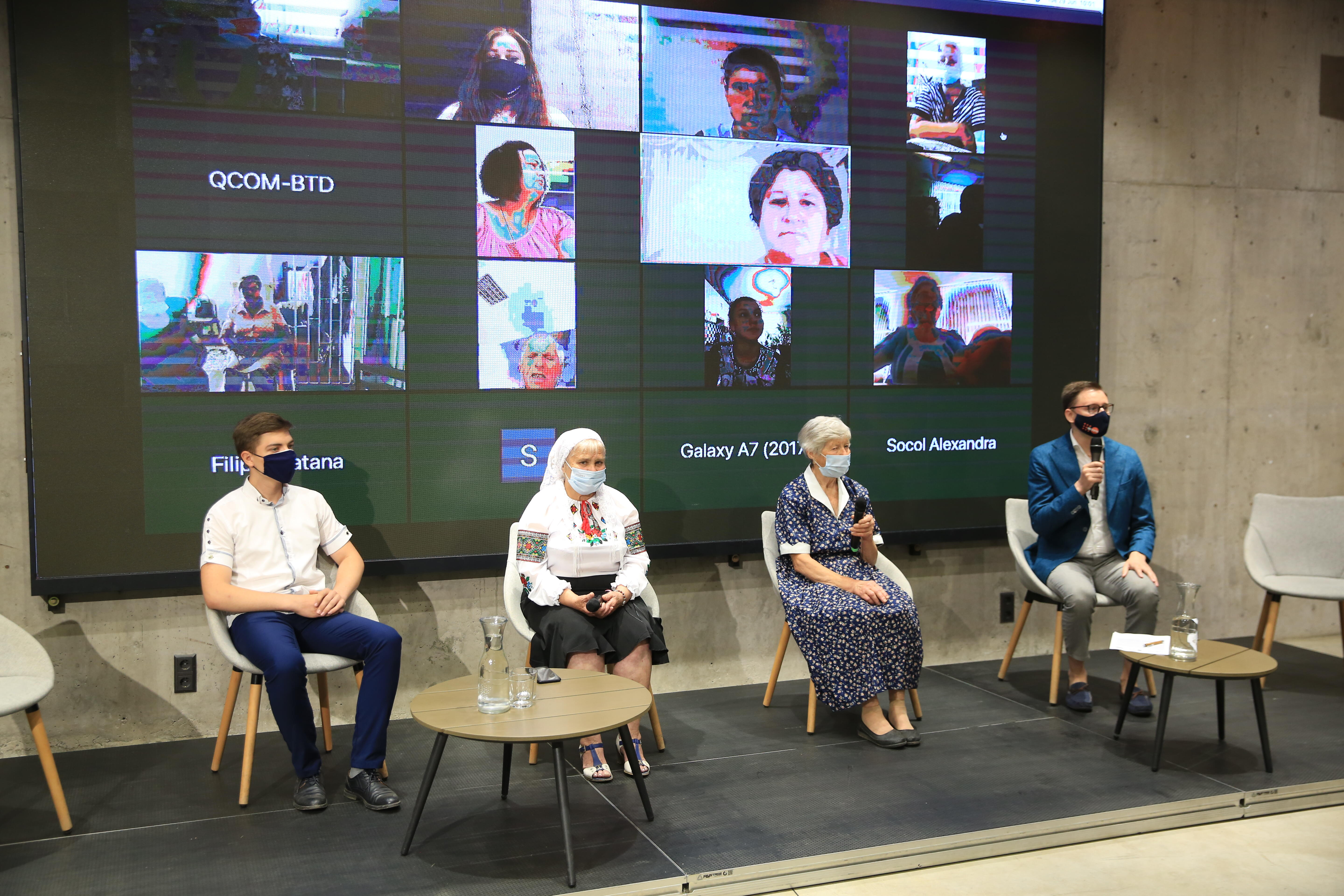The UN Population Fund (UNFPA) program on digital empowerment of older people with the help of young volunteers is gathering momentum. Today, the second phase of the project was launched, its aim being to create a bridge of communication between generations, especially during a pandemic. Thus, another 100 older people from the districts of Soldanesti, Rezina, Basarabeasca, Leova, Orhei and Straseni will receive mobile phones connected to the Internet and will learn with the help of young volunteers how to use them.
In 2020, in response to the COVID-19 pandemic, UNFPA launched an initiative to promote intergenerational dialogue for the digital inclusion of the older people, signing a Collaboration Agreement with the Moldcell Foundation. In the first phase of the project, carried out in collaboration with HelpAge International and the UN Office for Human Rights, more than 200 older people from four districts received mobile phones and were taught how to use them by a group of young volunteers.
Liuba Golub, 79 years old, from Ciniseuti village, Rezina district is among the older persons who held a phone in her hands for the first time.
‘I admit, at first I was resistant, but now we have become friends. I have no children and no husband, and during the pandemic, the phone helped me not to feel alone – with its help I check the weather forecast, call the doctors for consultations and communicate with relatives. I encourage people my age not to be afraid of information technologies – they help us overcome isolation’, said Liuba Golub.
‘I am glad that the older persons I worked with were open to something new. I tell everyone not to be afraid – by communicating we learn from each other’, noted Andrei Condrasov, 16 years old, Ciniseuti village, Rezina district, volunteer within the program.
This year, in order to increase the impact of this program, UNFPA Moldova expanded its partnership with the Moldcell Foundation, as well as with the Swiss Cooperation Office, as part of a new phase of this project, in which another 100 older people from the districts of Soldanesti, Rezina, Basarabeasca, Leova, Orhei and Straseni will receive mobile phones connected to the Internet and will learn with the help of young volunteers how to use them.
‘We are pleased to expand this program launched in 2020 as UNFPA’s response to the coronavirus pandemic. We have shown that an unprecedented crisis can generate opportunities, as was the case with this important project. In a context in which Moldova is ageing and every 5th person is over 60, this intergenerational project that unites the older people and young also contributes to demographic resilience, promotes social inclusion, solidarity, reduces the digital divide between generations and safeguards the right of every person, regardless of age or social status, to live a dignified and healthy life’, noted Nigina Abaszada, UNFPA Resident Representative in Moldova.
‘For Switzerland, the principle of leaving no one behind is essential. Through this project we support older men and women with disabilities. In this way, we promote social inclusion, as well as intergenerational dialogue, in order to reduce the digital divide between young and older and to promote active and healthy ageing’, said the Director of the Swiss Cooperation Office in Moldova, Caroline Tissot.
She also stressed the importance of partnerships between international organisations, such as the UN and the private sector, civil society and authorities.
The participants in the 2020 and 2021 program will also be trained on how to access certain public, social or medical services, will participate in training on the use of online services, will be helped to strengthen their resilience during a pandemic, etc. Irina Strajescu, executive director of the Moldcell Foundation, argues that digitalisation is the key driving force for reducing inequalities of any kind.
Irina Strajescu, Executive Director, Moldcell Foundation:
‘During the COVID-19 pandemic, we were connected to the real world with the help of Internet, applications, but our grandparents – less, especially those who do not have grandchildren around. With this project that connects generations, we are happy to promote Moldova in the international community.’
‘The project has helped to facilitate communication and information of these people, to promote intergenerational dialogue, and last but not least, it has provided the opportunity to access certain public services, including consultancy, through free telephone helplines’, said the Secretary of State of MHLSP Vasile Cusca.
According to the data collected in the 2020 Generations and Gender Survey conducted by UNFPA, the digital divide between the older persons and young people in Moldova is enormous – only 34% of the population aged 60 to 79 used the Internet, compared to 82% of those aged 15-59 years.
Contact person: Nata Sarioglo, Communication Consultant, UNFPA Moldova. Tel. +373 78 835 845


